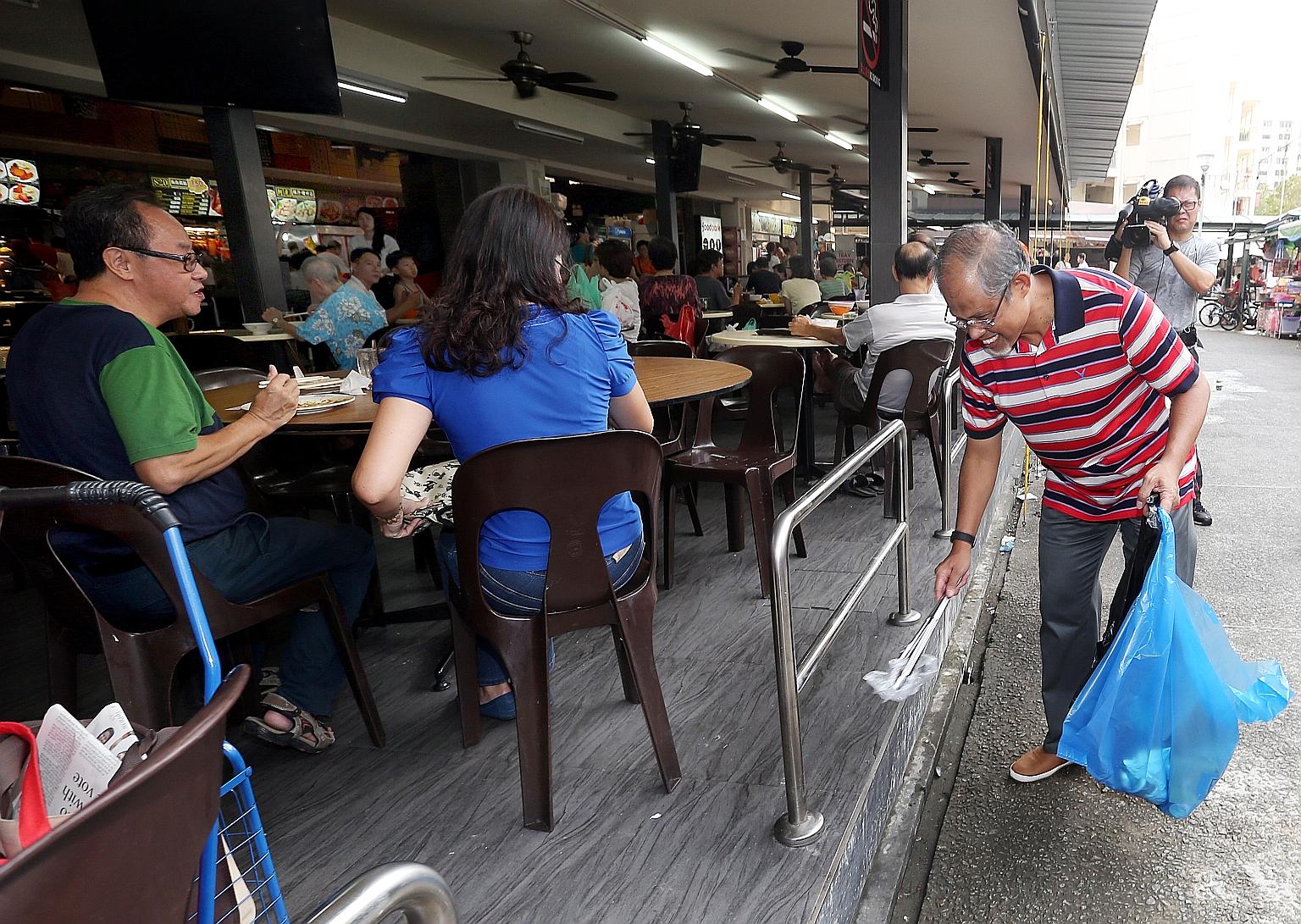Singapore diners still fare poorly in returning trays
Public Hygiene Council gives higher marks to other areas like personal hygiene, litter disposal and clean toilets
Sign up now: Get ST's newsletters delivered to your inbox

Minister for the Environment and Water Resources Masagos Zulkifli doing his part to keep Singapore clean in Tampines yesterday, as part of the islandwide Operation We Clean Up event. He was among ministers and MPs who were out in force to pick up litter with residents in their wards.
ST PHOTO: LAU FOOK KONG
Jalelah Abu Baker
Follow topic:
Getting people to return their trays after a meal remains a big priority for the Public Hygiene Council.
It set up a drive encouraging people to do so in 2013, but in an informal assessment requested by The Straits Times on how Singapore fares in various aspects of hygiene, council chairman Edward D'Silva rated tray return the most poorly, giving it just four marks out of 10.
Other areas - like personal hygiene, adoption of dirty areas to keep them clean, litter disposal and clean toilets - fared better at six or seven out of 10.
"When trays are not cleared quickly enough, especially in non- air-conditioned food places, the birds come and pick at the food," he said, adding that it could cause diseases to be spread.
As a reminder to Singaporeans to keep the environment clean, the council held its annual Operation We Clean Up event around the island yesterday. It was organised with the support of the Singapore Kindness Movement and the National Environment Agency.

Patrons at 31 Kopitiam outlets were reminded to return their trays, as part of the initiative.
Mr Yip Keng Soon, director of operations at Kopitiam Investment, said diners have the misconception that clearing their trays will leave cleaners out of work.
"They will, in fact, be making life easier for the cleaners and making work less of a burden for older workers," he said. He acknowledged, however, that tray-return facilities are still lacking.
Ministers and Members of Parliament were out in force to pick up litter with residents in their wards.
Among them was Mr Masagos Zulkifli, Minister for the Environment and Water Resources, who did his bit at an open area in Tampines Avenue 3.
"I was told that it takes just two minutes to clear up the bins for the cleaners," he said. "However, if the litter is thrown all over the place, it takes 20 minutes of back-breaking work."
In conjunction with the event, several wards also gave their cleaners a day off yesterday, and some hosted dinner for the cleaners.
A bin sensor system, which alerts the town council and cleaners when bins are full, was also piloted in Nee Soon.
Some 24 corporate partners and non-governmental organisations have registered for this year's clean-up event, up from 11 last year.
The number of locations for clean-ups has also increased, from 133 last year to 190 this year.
Over 11,000 participants had collected more than 7,200kg of litter as of yesterday.
Professor Leo Yee Sin, director of the Institute of Infectious Diseases and Epidemiology at Tan Tock Seng Hospital, said the environment has an impact on health.
"A lot of times in medicine, we think that it is the discovery of antibiotics and the discovery of vaccines that change the health of people. Actually, if you look back into Singapore's history, what made a difference was the environmental cleanliness... the sanitation."
Mr D'Silva believes more can be done to encourage people to keep Singapore clean.
He said: "My wish is that the movement will have more traction in two years' time, and activities at different times of the year."

